It’s been a few years since our boy Matt Nelson-Carroll dropped by to offer some editorial content, but he’s made up for lost time with a deep dive into the dos and don’ts of event promotion, with a particular slant towards events with the scope and clientele Our Thing tends to aim for. Lord knows we’ve put on a number of events which have involved a lot of white-knuckles and Pepto-Bismol, so let’s see what Matt has to say…
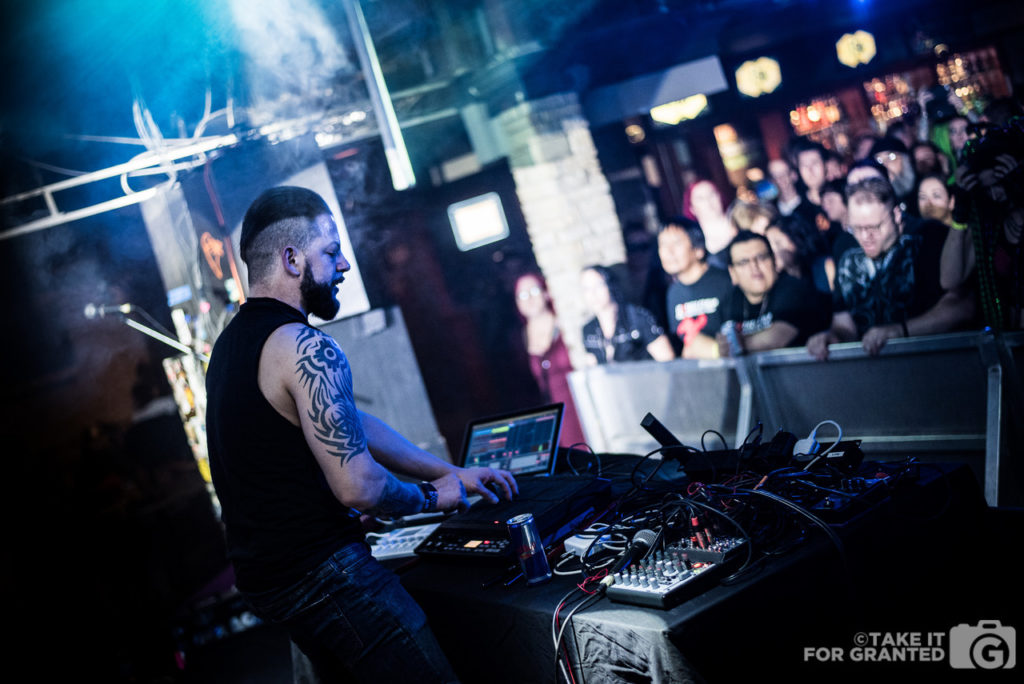
How can you get a full house out for your show, like this crowd at Terminus during ESA’s set? Photo by Jill Grant of TakeItForGranted.ca
Is there any job more awful in the goth/industrial sphere than local event promotion? No way! Being a promoter is a thankless monstrosity of a job, but without promoters a scene will do nothing but suffer. If you’ve found yourself in a position to say to yourself, “I should become a promoter,” I both wish you well and pity you. The learning curve for promoting is so steep that even if you’re experienced, you’re probably going to make mistakes. I should know; over the course of nearly fourteen years toiling in the Chicago scene, I promoted a lot of events, and I screwed up on plenty of them before I started figuring out how to do things right. In the spirit of helping you, the aspiring journeyman or even well-traveled promoter, avoid some common mistakes, here is my wisdom, straight to you!
1. If you can’t afford to lose your shirt, don’t do the show
Promoting is rough, friends. Not only is it thankless, it’s also an expensive job whose rate of return is held hostage by many capricious variables, such as events you didn’t know you were competing with (or knew you were and chose to ignore), an event falling after people have just paid rent and are broke, bad weather, etc. Good, effective promoting is ultimately an effort to hedge the bet that you’re making by deciding to put an event on, but there is never a guarantee that you’re going to do well, and it’s certainly not always going to be your fault if your event does poorly. Because of this, never go into it with the assumption that it will do fine and you will at least break even. Tally up all the money you’re going to spend on this event, between tech rider rentals, venue costs, personnel fees, promoting expenses and band guarantees, and if you cannot afford to lose that entire sum, you need to take a moment to have a really good think about whether you want to do this event or not. One particularly poorly-timed rainstorm can mean all the difference between having a full house and the band members outnumbering attendees.
2. Never, ever try to weasel out of paying bands if you said you would
Consequent to rule 1, you might find yourself in a position where your cash-in-hand is in the low single digits. You may find yourself thinking of ways to cut your losses, and the dark road that thinking leads you down may bring you to the conclusion that you should stiff your bands. Phrase it however you want; ‘times are hard’, ‘the bands need to be understanding’, ‘but rent is due tomorrow’, whatever. It is what it is, and when you agree to a guarantee or promise bands they’ll get at least something for their trouble, you’re making a commitment, and trying to get out from under it is an attempt to stiff them. The reasons not to do such a thing are infinite, but it all comes down to trust. Bands are trusting you to do right by them when they sign on with you as a promoter, whether they’re local openers, touring bands or big headliners. They’re taking time out of their lives and committing that time to you in a show of good faith. When you stiff them, regardless of the motivations to do so and how good and reasonable they may seem to you, the result is a violation of trust on your part. That violation of trust will be something you carry with you, as bands talk amongst each other and your reputation as an unreliable promoter will precede you when it comes time to book tours. Do right by your bands and you’ll get a good rap; don’t do right by them and you’ll eventually be known as a promoter to avoid.
3. Read the riders, both tech and hospitality – If you don’t understand them, ask
Riders are a big part of the difference between a bad show and a good show. The tech rider is the document that the band provides that spells out their technical requirements; this is where the band spells out things like required stage size, equipment they need provided (this may range from DI boxes to full drumkits or synthesizers), PA expectations, projectors, lines out, etc. Read this closely and make sure you understand it and think it is something you can provide. If you don’t know what anything on a tech rider is or anticipate problems with fulfilling it, communicate with the band and see if explanations or compromises can be reached. Similarly, the hospitality rider is usually just the food expectations a band has. Normally this is simply where they’re going to tell you if they can subsist on a cheese pizza or not, but often bands will give you the option of a buyout (e.g. some cash amount you provide per member in lieu of a meal) or their dietary restrictions and/or expectations. Don’t ignore this, because a hungry band is an irritable band, and an irritable band is going to put on a bad show.
4. Promote smart: Don’t just rely on Facebook events, particularly if you’re not spending money on them
Facebook is increasingly irrelevant to most age groups that are likely to actually go to a show, so relying on Facebook to promote your event is already a dodgy prospect. On the other hand, there’s no denying that Facebook is the biggest game in town, so it’s hard to argue that you should not promote on it at all. However, Facebook is notorious for limiting reach on events that do not give money to them. Starting years ago by disallowing the ability to invite a page’s audience to an event, Facebook has closed more and more doors to effective free promotion. This is never going to change and it behooves you the promoter to adapt. However, if you do go the route of paying for ads, know that Facebook is also notorious for a very bad return on investment, meaning that the amount you pay per interaction is likely to be very high. If you’re going to go this route, and you probably should, try to maximize your ROI by learning how to target ads effectively (which is a lot harder than it sounds, or than it should be). This will hopefully refine your ad targeting to the point where it will drive your ROI up, but don’t expect miracles. Responding to an event is highly noncommittal; expect 20-40% of the people who respond to your event as ‘Going’ to show up and count yourself lucky if anyone who responds with ‘Interested’ shows up at all.
Outside of Facebook is the age-old pain in the ass of flyering. Nobody enjoys doing this since it can be expensive and time-consuming, but it is still a relevant, complementary tactic to online promotion. At the absolute bare minimum, run some posters off to give to the venue so that people who show up at it for other events stand a better chance of becoming aware of your event. Putting posters up on electrical poles and walls is a dodgier prospect, since often they will get torn down by city cleanup workers or business owners, and might even get the cops called on you for vandalism if a business owner is particularly NIMBY, so do so at your own peril. As for flyers, it’s not a bad idea to at least do a small run and leave them at well-targeted locations that you think people who might be interested will go, such as boutique clothing stores, record shops, coffee shops, boardgame bars, etc. Often, clubs and other promoters will be open to promotion-sharing and will let you flyer there if they can flyer at your event, but discuss this with the venue you’re working with first to make sure they don’t feel it will interfere with their own bottom line and nix the idea.
It’s also worth noting that a good 95% of flyers and posters you print are going to end up in a landfill, and that’s if you’re lucky. I personally do not recommend going for full color glossy flyers and posters unless you really, really think it’s necessary. Old school Xerox flyers and posters will probably work just as well if they have striking design and/or imagery.
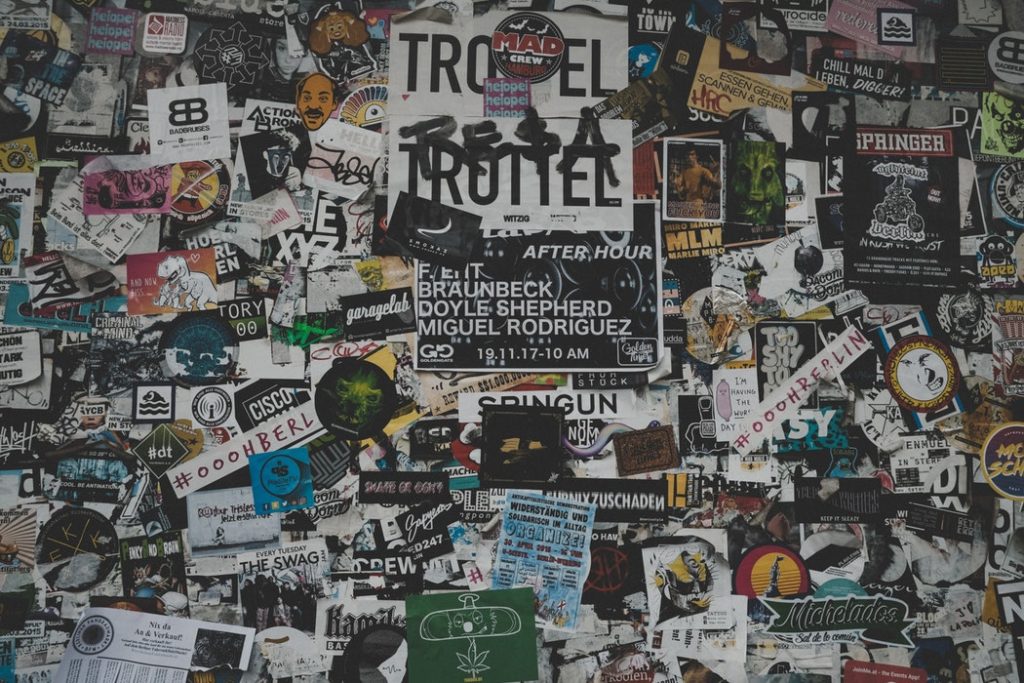
Street hustle: still necessary even in 2019.
5. If at all humanly possible, get your own sound person
There are very few small-to-medium sized venues that deal with electronic music exclusively or often enough to have a person running the sound board who won’t be taken off-guard by an electronics-heavy band, which I’m assuming most of the readers of this article would be interested in promoting. It is a tale as old as time: a promoter starts getting their bands ready to sound check, only to find that the sound person that the venue provided is confused and angry that it isn’t a four-piece rock band, and the sound suffers deeply due to this. Make sure you talk to the venue and/or their in-house sound person before the show goes on and that expectations are clearly set. If you are a little uncomfortable with how that expectation is received, try to bring your own sound person, if you have access to one. Having a sound person on speed dial is a very good card to have in your back pocket regardless, because there is always a non-zero chance that the venue-provided one will no-show the event anyway, throwing your event into chaos instantly. Oftentimes a dedicated musician or recording studio worker will either make a good sound person in a pinch, or at least be able to point you in the right direction, so do some asking around well beforehand and establish a relationship with someone who comes well-regarded. And make sure you pay them!
6. Think about problems with events you’ve gone to
There’s no better teacher than experience! Think of all the circumstances you’ve encountered at shows as an attendee that have spoiled your experience to some extent. This list could go on and on: bad sound, unfriendly bar staff, hyper-aggressive or needlessly confrontational security staff, bad ventilation, weird smells, unclean bathrooms, bad bar selection, shows that start and end way too late on weeknights, etc. All these things you’ve experienced on your own as a patron are a list of things to avoid as a promoter. These should inform your choices from the outset. If a venue smells bad, only serves well drinks or has security staff that may very well physically assault your patrons, it is probably best to keep looking. If it’s a weekday and you can safely predict that most of your attendees are nine-to-fivers, don’t put your headliner on at 1am. If your headliner is from out of town, don’t put them on super late and have them focus more on how late they’re going to load out than their performance. Figure out the set times ahead of time and post them so attendees aren’t flying blind. It doesn’t hurt to ask around and find out what valid pet peeves people have about shows. The more work you put into reducing the negatives ahead of time, the better chances you have of attendees having a good time and remembering your event fondly, meaning they’ll be more likely to come to the next one.
7. Never skip soundcheck
Just like in war, in promoting it is a bad plan that can’t be changed once things start rolling. A lot of things are going to happen that will eat into the time you have hopefully allotted before doors for sound check, hopefully for most or all of your bands. Bands are going to run late, someone is going to take too long checking their drum lines, the venue manager might just be a flake and not show up until ten minutes before doors, and all sorts of other random variables can, and probably will, spring up at the last minute. All of these things are going to make you want to cut soundcheck and either have bands check right before they go on, meaning they’re going to be noodling around in the background and talking over the PA to the sound person while background music plays and your attendees look on in confusion, or just do a line check and hope for the best. This cannot be a hard rule simply because of the sheer random chaos of life, but don’t get comfortable with skimping on soundcheck, especially for your headliners. Stay in constant contact with the venue and press them to hurry up if they’re lagging; the same goes for the sound person, whether it’s the in-house sound person or your own hire. Always try to sound check last-to-first, meaning headliner checks first, their direct support second, opener third, etc. so that loading equipment on or off stage makes more sense, and so that at the absolute worst, at least your headliner will sound good. Also, do not be afraid to put your foot down if a band is hogging soundcheck all to themselves. A good soundcheck means much improved sound, which means a better night. Do your best to provide this.
8. Show up!
Is this a no-brainer? Sadly, it is not. You as the promoter are the face of your event to all involved parties, including bands, venue staff and attendees. If you choose to no-show your own event, you’re sending a lot of bad signals. Bands can only interpret it to mean that you do not care about how organized your venture together is, the venue interprets it to mean you do not care about your event enough to manage it and expect them to do so, and attendees interpret it to mean that you are disorganized, sketchy and noncommittal. It’s a bad look all around and will earn you a bad reputation just as easily as not paying your bands will. Sometimes life gets in the way and you will have no choice but to be elsewhere, but it is still up to you to communicate this to all invested parties, plus to delegate your day-of duties to someone reliable. The venues you as a promoter in a small genre are likely to encounter almost certainly do not have an on-call stage manager, so it will probably fall to either someone in one of the bands or the sound person to stage manage, meaning double-duty for someone who already has a crucial job to do unless you plan ahead. Don’t leave the proper running of your venue up to chance. Plus, this thankless job is all work and no play until you’re doing the event! This is the fun part! Be there for it!
9. Do it for the right combination of reasons
Last but not least, make sure you are promoting for a good reason. If you’re reading this, you are probably not promoting in a genre that is going to provide a profit at the end of the night; disabuse yourself of the lucrative profits angle sooner than later, because you are probably going to lose money more often than you’re even going to break even, especially early on. Similarly, don’t do this because you want to hang out with bands and avoid the non-glamorous work; bands can smell someone who wants to be One of the Cool Kids a mile away and know that it means an unreliable promoter. Third, and most important of all, you must recognize that passion and enthusiasm are never a replacement for knowing what you’re doing. Promoting in a small scene and/or a niche genre means that a lot of pragmatic motivations are non-factors, so of course most people who do so are passionate about the music and, provided they aren’t in it for fame or fortune, are probably doing it because they want to see cool bands and feel that nobody else is going to make it happen. This is great! This is your heart in the right place! This also, unfortunately, does not grant you abilities beyond your ken. Make sure to complement your passion with experience by asking other promoters for tips and tricks, listening to your community’s expectations, and doing your homework by reading things like this very article! Promoting is definitely not rocket science, but a lot of promoters make a lot of avoidable mistakes because they don’t do their homework, don’t learn from their experiences, and believe that their passion and can-do plucky spirit should and does suffice. Being a good promoter and a passionate lover of music are far from contradictory traits, and with a little experience and know-how, you can make the two complimentary to each other!
That’s a lot of information, isn’t it? Trust me when I say that I would not set all of that down in writing if I didn’t believe that it touched upon a lot of common errors that promoters make, often without realizing they’re doing it. This is also not even remotely an encyclopedic list of all the things to get right or avoid, but I feel confident that it should help set a good baseline as to what is expected of you as a promoter. Hopefully this helps you put on some great events!

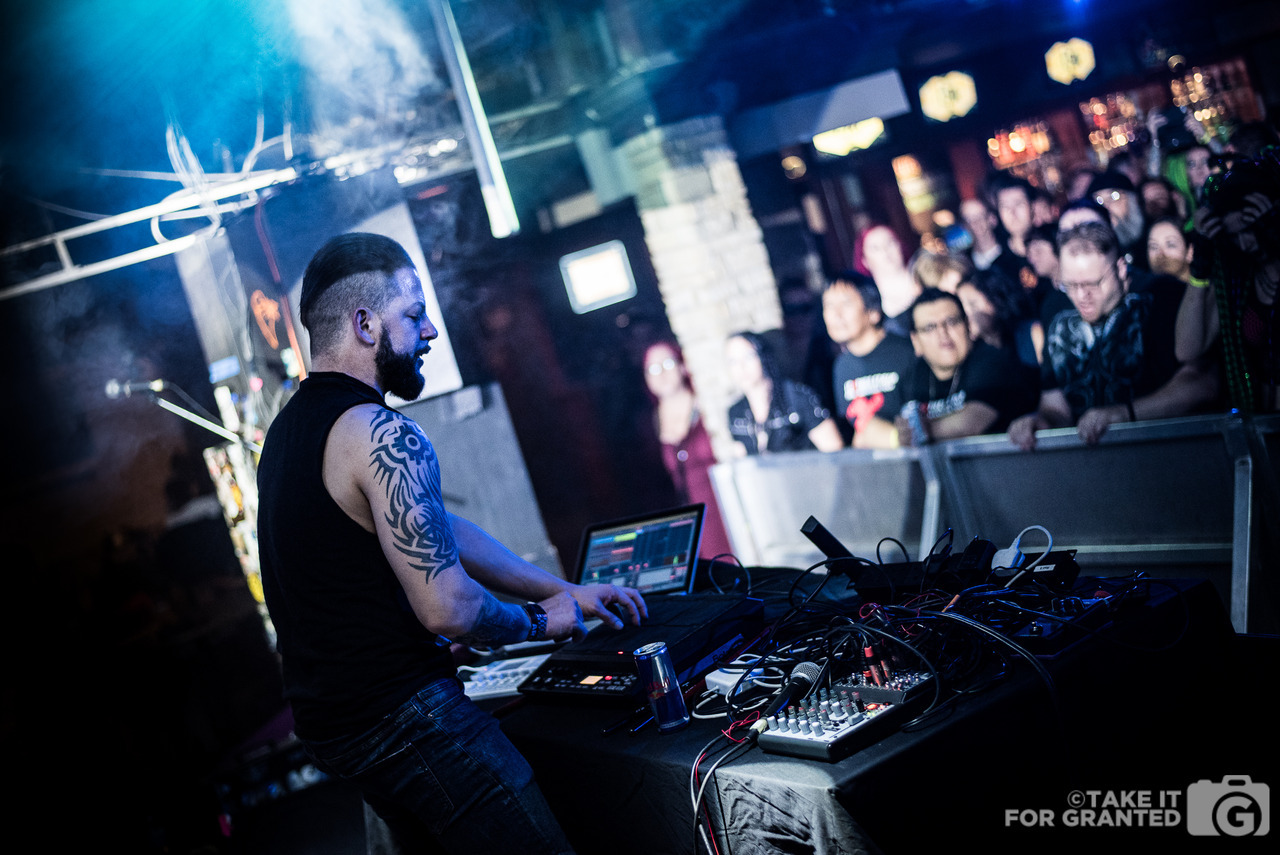


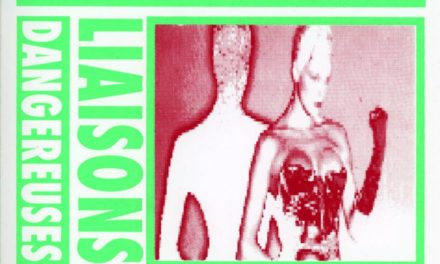
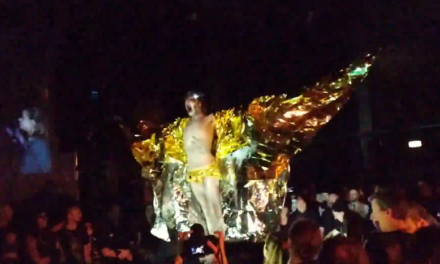
10. Don’t spend any money to promote any overseas band until you see a copy of their visa.
Is there room in today’s scene for a difference between wanting to “be a promoter,” and simply wanting to promote one show? If we give that promoting in the industrial scene is a likely negative-profit activity, then from a fan perspective, I might be very interested in parting with a large sum of money (and effort) to throw a live industrial event ONCE (or at most, rarely), just for the positive experience of having given something back to the community, and to bring in artists who might otherwise never play here. However, I’m sure the appeal of this would decline if I was expected to do it frequently, and I’d soon be wishing it was someone else’s turn to fund the next show– while not regretting that time that I did do it. Maybe if rotating/irregular promoters were the norm in non-profit scenes, it would even help turnout: if you feel socially obligated to attend each of your friends’ events at least once, but each event is put on by a different friend, you’re going to all of their events? Or maybe the best solution is for a fan who is willing to to fund a particular show to pair up with someone who has promoting experience, and co-promote it. From an artist perspective, it’s obviously more desirable to work with regular promoters only: their experience means that their reputation is actually meaningful, and theoretically makes them better at promoting than someone who has never done it before.
So, as a general rule, do most artists only work with regular promoters?
And if so, how do first-timers with ambitions to promote regularly reliably distinguish themselves from those only aiming to be one-timers?
And how does one even become aware of which artists will be touring, and when? Often I see announcements of industrial tours that are skipping my city and think, perhaps I would have liked to have brought that here. But of course, the best time for action would be BEFORE the tour dates are announced to the general public.
Thank you for this. I live in Regina SK and have been so tempted to become a promoted for industrial music in this town since no one hardly stops here. I will injest this article and would be open to discussion.